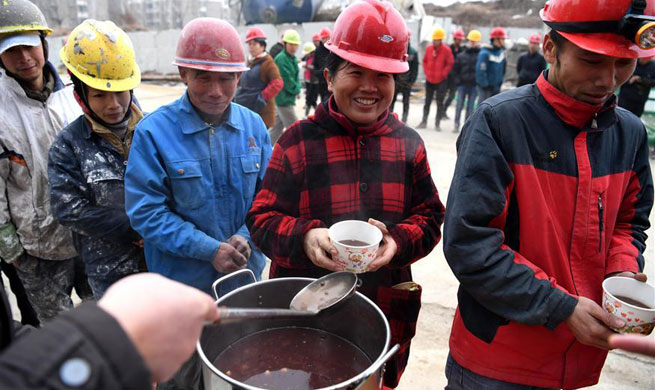SYDNEY, Jan. 24 (Xinhua) -- Packaged foods without voluntary listings of ingredients that could trigger life-threatening allergic reactions in consumers are worryingly common in Australasia, according to latest Australian research.
A survey involving nearly 200 pediatricians' patients throughout the region who were suffering from allergic reactions to packaged food found more than 10 potentially life-threatening cases in which the suspected allergen was not a listed ingredient, with half of them from foods that did not have the voluntary precautionary allergen labelling, the study's lead author Giovanni Zurzolo told Xinhua on Wednesday.
Unlike the mandatory ingredient list which food manufacturers must have on their products, the voluntary labelling is about alerting consumers to possible traces of food items that they could be severely allergic to, said Dr Zurzolo, who is a postdoctoral fellow from the Murdoch Children's Research Institute and Victoria University. The research by the institute was also published in the Journal of Paediatrics and Child Health.
"Fifty percent of the cases were from products that had no advisory statement at all. So what's actually quite disturbing is that the 50 percent of products that had no information are presumed to be safe for consumers, but they are still reacting to these foods," he said.
There is therefore no effective way to currently determine whether or not a food product without the precautionary labelling is safe for consumption by those with food allergies, and while statements such as "may contain traces of" are designed by the food industry to help consumers pick items safe for consumption, better labelling practices are needed, said the researchers.
"What we've found is only the tip of the iceberg. There's a lot more people reacting, who haven't been reported. What we do know is that when people react to a packaged food, they don't always report it to their healthcare provider or to the manufacturers," said Zurzolo.
"Sometimes they may feel that it's their fault and they don't worry about it. So we're currently doing new research ... to get more data on how big these reactions are."

















